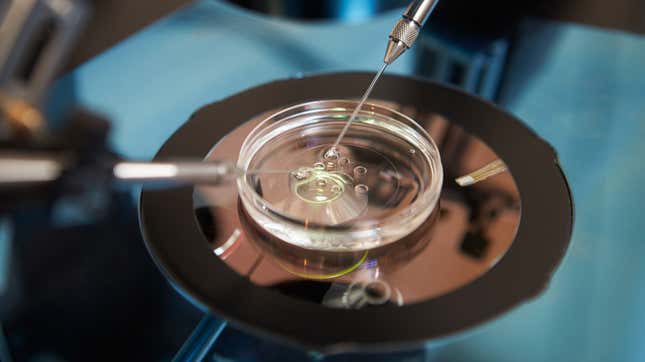Fertility Clinics Cautiously Plan to Expand Services, Against Coronavirus Concerns
Latest

Last week, the New York Department of Health quietly issued an advisory clarifying that “sexual and reproductive health services” are “essential” and thus exempt from “shelter in place” requirements. The document went on to list services such as abortion, obstetrical care, STI treatment, and, perhaps more surprising, fertility services, including “infertility treatment.”
Just last month, fertility clinics across the country drastically limited services following guidance from the American Society for Reproductive Medicine (ASRM), which advised clinicians to avoid initiating “new, non-urgent fertility treatments,” with urgent cases being limited to only extreme circumstances. In response, thousands of doctors, patients, and supporters rallied around a petition urging more nuanced and permissive guidelines. Now, some New York fertility clinics have suggested that the health department advisory paves the way for expanded services, although contradictory guidelines from the ASRM complicate the matter.
“’I needed to see this tonight! I have been in such a funk after having to cancel our retrieval in March,’ a patient wrotE.”
A few days after the advisory, the Twitter account for Kindbody, a fertility practice with offices in New York, posted, “The decision of how and when to provide fertility services is now one to be made between a patient and doctor.” CNY Fertility took to Facebook with a similar message: “We support this and will map out a proper plan over the next week for CNY Fertility to provide a safe environment for our staff and clients.” This week, RMA of New York sent out an email alerting patients that “the decision of how and when to provide these services is now one to be made between a patient and their doctor.”
This development has been strangely absent from headlines, given it follows a weeks-ago flurry of media attention around the initial shutdown of services. But it’s made the rounds in online fertility communities, where patients have celebrated with party popper emojis and multiple exclamation points. “I needed to see this tonight! I have been in such a funk after having to cancel our retrieval in March,” a patient wrote on CNY Fertility’s Facebook page. “This is the best news I’ve heard all week! Here comes the happy tears!” said another. The responses were not all positive, though: “Yes we’re all here in hopes of having our miracle babies, but at what cost? The virus is nowhere near over,” wrote one woman.
-

-

-

-

-

-

-

-

-

-

-

-

-

-

-

-

-

-

-

-

-

-

-

-

-

-

-

-

-

-

-

-

-

-

-

-

-

-

-

-








































